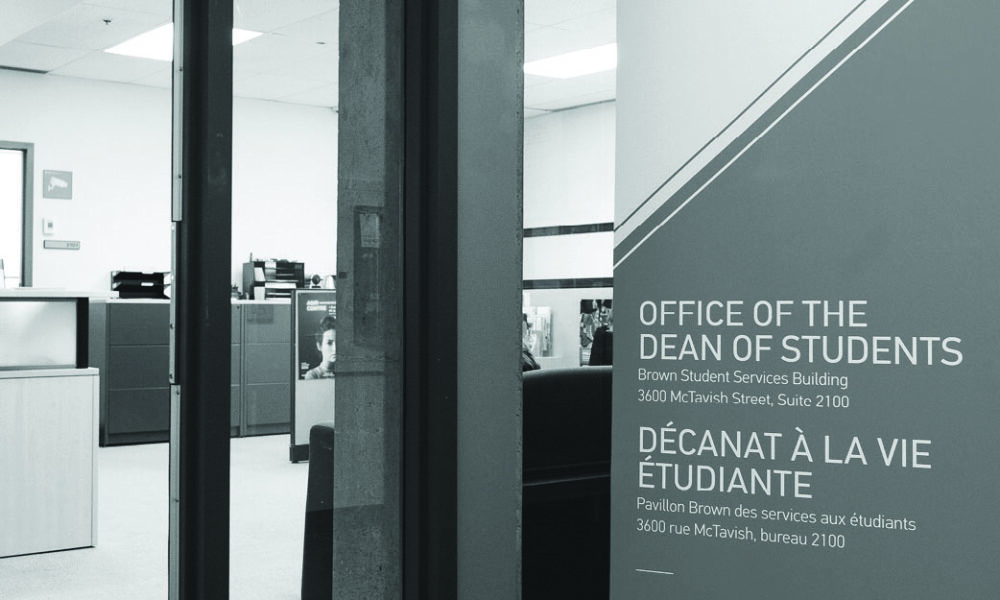Content warning: Mention of suicide
On Feb. 7, McGill will hold its first community consultation regarding a suicide postvention plan that has been in the works since a need was first identified in 2019. The postvention plan is one third of a larger project designed to address suicide on campus. McGill is updating the community on the status of the framework during Suicide Prevention Week in Quebec—the week of Feb. 5 to 11. The Association québécoise de prévention du suicide first launched the awareness week 33 years ago and has held it every year since.
The postvention component, which details the procedures McGill will follow after the death of a student by suicide, will eventually be accompanied by prevention and intervention frameworks. According to Melissa Lutchman, McGill’s crisis intervention and suicide prevention specialist, the postvention plan was developed first because it was identified as the largest gap in suicide-related services at the university.
“It’s also the largest gap for many universities across Canada,” Lutchman said in an interview with The McGill Tribune. “With student consultations, and faculty, and staff, [we learned] what the needs were around postvention, [like] knowing how to talk about suicide, knowing what to do when a student returns from a suicide attempt. What do you say? What do you not say when a student dies by suicide? What does McGill do?”
Currently, McGill is not equipped to help students experiencing a mental health crisis. McGill recommends that students go to a hospital or call Suicide Action Montreal in case of emergencies. For students not in a crisis but still experiencing difficulty, ODoS provides case managers who are trained to guide students and facilitate access to care, whether that is at the Wellness Hub or an external clinic.
The postvention framework will not be immediately accessible to the student population, says Maya Willard-Stepan, the Students’ Society of McGill University (SSMU) mental health commissioner. She told the Tribune that the plan’s delayed public release is because the Students’ Suicide Prevention Framework Committee will be holding community consultations to ensure the document can properly serve students.
“The other really important part [is] making it readable [and] ultimately smooth on the other side of things, [and] transparency around these protocols is going to be very important,” Willard-Stepan said. “We want to produce something that is safe to put out and accurate and true and that the community can take comfortably”
Lutchman was recently hired by McGill to work full-time in order to complete the three-pronged framework in a timely manner—she was initially hired on contract. Before coming to McGill, Lutchman spent 18 years working at Suicide Action Montreal and Talk Suicide Canada, formerly known as Crisis Services Canada. Her expertise in the field and deep knowledge of crisis care have allowed her to ensure the larger framework project focuses on suicide rather than general mental health care.
“There is a lot to say about not confounding mental health with suicide,” Lutchman explained. “Although there [are] a lot of people with mental health diagnoses who die by suicide, there are a lot who don’t. When you confound the two, you contribute to stigma and labelling.”
Stigma surrounding suicide is something first-year nursing student Madeline Dumouchel has come across in her time both in John Abbott College’s nursing program and at McGill. Dumouchel believes that destigmatizing suicide is crucial and something McGill should continue working toward.
“Having [an] open discussion can save [the] lives of others who are afraid to speak up and feel lost or alone,” Dumouchel wrote in a statement to the Tribune. “The university should be very involved in times of crisis, as many students rely on their school for support and access to resources [because] crises can impact students’ academic performance, their life at school and at home [….] Some individuals […] may feel like school is their safe place and comfort zone.”










